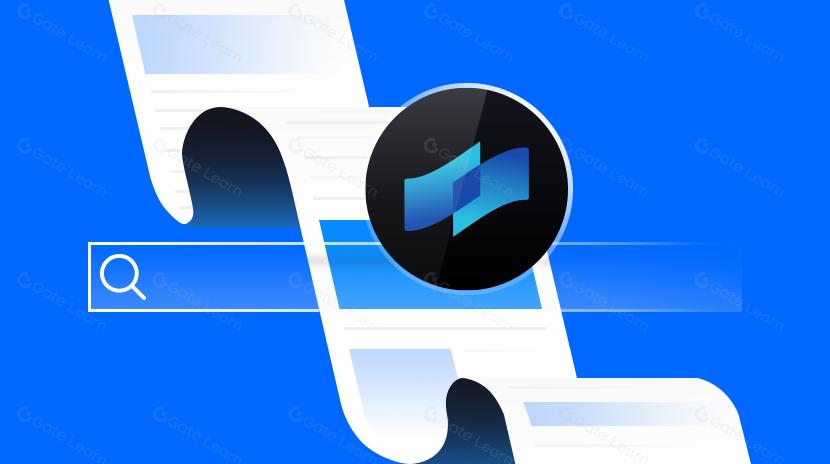GameGPT là gì? Tất cả những gì bạn cần biết về DUEL
Ngành công nghiệp game đang phát triển, với blockchain, trí tuệ nhân tạo (AI), và tài chính phi tập trung (DeFi) biến đổi cách mà người chơi tương tác với thế giới kỹ thuật số. Các mô hình game truyền thống thường thiếu sở hữu tài sản thực sự và cơ chế game thông minh, hạn chế việc kiểm soát và tương tác của người chơi. Bằng cách kết hợp trí tuệ nhân tạo, hợp đồng thông minh, và mã thông báo không thể thay thế (NFTs), các nền tảng mới cho phép trải nghiệm hấp dẫn và được thúc đẩy bởi người chơi hơn. Sự chuyển đổi này cho phép nhà phát triển tạo ra môi trường tương tác động và sống động trong khi đảm bảo nền kinh tế trong game an toàn và minh bạch. Một dự án nhắm đến dẫn đầu trong sự đổi mới này là GameGPT, một nền tảng được thiết kế để định nghĩa lại game với cơ chế được cung cấp bởi trí tuệ nhân tạo, blockchain cho cả người chơi và nhà phát triển.
GameGPT (DUEL) là gì?
GameGPT, công cụ động lực trí tuệ nhân tạo đầu tiên trên thế giới, đã được phát triển bởi Prism để cách mạng hóa ngành game blockchain thông qua các công cụ được trao quyền bởi trí tuệ nhân tạo. Tầm nhìn đằng sau GameGPT là tạo ra một bộ công cụ trải nghiệm game được động lực bởi trí tuệ nhân tạo toàn diện, giống như Google Suite nhưng dành cho game blockchain. Dự án đã được thông báo chính thức vào tháng 1 năm 2024, đánh dấu một kỷ nguyên mới cho sự đổi mới trong lĩnh vực game on-chain.
Sự phát triển của GameGPT bắt nguồn từ nhiệm vụ của Prism để mở khóa quyền truy cập vào trò chơi blockchain trên quy mô toàn cầu. Cùng với việc ra mắt, Prism giới thiệu DUEL, token bản địa của nền tảng, thay thế cho token RAIN trước đây được sử dụng. Sự chuyển đổi này đã củng cố vai trò kinh tế của DUEL như là cột sống của hệ sinh thái GameGPT, hỗ trợ nền kinh tế trò chơi, phần thưởng trong trò chơi và cơ chế quản trị.
Dưới sự lãnh đạo của Will Deane (Người sáng lập & CEO), Devin Lovato (CMO) và Victor Tan (COO), GameGPT nhanh chóng mở rộng bộ sản phẩm game của mình, tích hợp cơ chế dựa trên trí tuệ nhân tạo vào các chế độ chơi như Thách thức, Người sống sót và Khu vui chơi. Các công cụ này giúp cho các nhà phát triển tạo ra môi trường game tương tác và động độc đáo, trong khi người chơi hưởng lợi từ lối chơi linh hoạt và cải thiện quyết định trong thời gian thực.
Trong suốt năm 2024, Prism tích cực xây dựng cơ sở kỹ thuật của GameGPT, tập trung vào tích hợp blockchain, nội dung do trí tuệ nhân tạo tạo ra, và trải nghiệm người dùng liền mạch. Đến giữa năm 2024, nhóm đã đặt nền móng cho một nền tảng chơi game trí tuệ nhân tạo hoàn chỉnh, thu hút sự quan tâm từ các nhà phát triển, studio game và những người đam mê blockchain.
Làm thế nào GameGPT hoạt động? Tổng quan về nền tảng và Kinh tế trò chơi
GameGPT là một nền tảng chơi game Web3 do trí tuệ nhân tạo điều khiển tích hợp công nghệ blockchain, thách thức dựa trên kỹ năng và chơi game theo phong cách arcade vào một hệ sinh thái duy nhất. Nó cung cấp nhiều chế độ chơi game, nội dung do người dùng tạo ra và một chương trình tạo ra, cho phép người chơi và nhà phát triển tham gia vào một nền kinh tế động, do người chơi điều khiển. Tại trung tâm của nền tảng là DUEL, token tiện ích chính mà tạo điều kiện cho các cuộc thi dựa trên cược, mua sắm trong game và phần thưởng.
Một trong những tính năng cờ vua của GameGPT là chế độ Thách thức, nơi người chơi có thể cạnh tranh trong các cược dựa trên kỹ năng trong một số trò chơi đa người chơi phổ biến nhất. Người dùng có thể tạo ra thách thức tùy chỉnh với cài đặt chi tiết, bao gồm mục tiêu, phí tham gia và phân phối phần thưởng. Công cụ tạo Thách thức tích hợp trực tiếp với API của các nhà xuất bản trò chơi, cho phép người dùng đặt mục tiêu cụ thể—như đạt được pentakill trong Liên Minh Huyền Thoại hoặc kiếm điểm kinh nghiệm trong TFT. GameGPT thu 10% phí cho việc tổ chức thách thức, với hơn 2,698 thách thức hoàn thành trên một cơ sở người dùng gồm 52,250 người chơi.
Ngoài các Thách thức, GameGPT đang mở rộng chế độ Survivor của mình, giới thiệu gameplay loại bỏ với cược cao. Hiện chỉ giới hạn trong Liên Minh Huyền Thoại, bản cập nhật cơ sở hạ tầng cho phép tích hợp trò chơi nhanh chóng, với sự hỗ trợ sắp tới cho Valorant, DOTA 2 và Call of Duty: MW3. Điều này sẽ mở rộng đáng kể phạm vi của nền tảng, mang đến cho người chơi nhiều lựa chọn tham gia trải nghiệm gameplay tùy chỉnh và cạnh tranh hơn.
Chế độ chơi Arcade đánh dấu một chương mới cho GameGPT, giới thiệu các trò chơi do chính hãng tạo ra mang lại trải nghiệm thân thiện với trình duyệt và di động. Được thiết kế để dễ tiếp cận và chơi ngay lập tức, Arcade bao gồm các tựa game như Silent Strike, một trò chơi bắn tỉa dựa trên sự âm thầm, Limitless Lanes, một trò chơi đua xe kiểu endless runner, và Merge Master, một trò chơi xếp hình chiến thuật lấy cảm hứng từ trò chơi 2048. Những trò chơi này chứng minh khả năng của GameGPT trong việc tạo nội dung in-house, giảm sự phụ thuộc vào các nhà phát hành bên thứ ba.
Ngoài lối chơi, GameGPT đang triển khai Chương trình Tạo lập, tận dụng các công cụ trí tuệ nhân tạo để giúp các nhà phát triển xây dựng và thâu tóm các trò chơi điện tử của riêng họ. Dự kiến vào giữa năm 2024, chương trình này sẽ giảm thiểu rào cản trong việc phát triển game, cho phép người tạo nội dung kiếm được lên đến 80% doanh số từ các trò chơi của họ được đặt trên nền tảng. Ngoài ra, GameGPT đang làm việc để tích hợp các IP cổ điển của game điện tử, bao gồm các trò chơi đối kháng và pinball cổ điển, thông qua mô hình chia sẻ doanh thu với các nhà xuất bản game hiện có.

Nguồn: prism-whitepaper.gitbook.io
GameGPT cũng cung cấp một hệ thống chế độ kép, nơi người chơi có thể tham gia chơi miễn phí hoặc chơi bằng token. Chơi miễn phí cho phép người dùng kiểm tra nền tảng mà không cần ví Web3, trong khi chơi bằng token cung cấp thu nhập thực qua phần thưởng DUEL. NFTs cũng sẽ được tích hợp, cho phép người chơi mua và giao dịch tài sản trong trò chơi, làm giàu thêm trải nghiệm chơi game trên Web3. Thông qua các chế độ chơi đa lớp, các công cụ phát triển được trang bị trí tuệ nhân tạo, và phần thưởng dựa trên token, GameGPT đang tái định nghĩa cách mà người chơi tương tác với trò chơi blockchain.
Kinh tế trò chơi
GameGPT có mô hình kinh tế đa dạng được thiết kế để phục vụ trải nghiệm chơi game miễn phí và có phí, đảm bảo tính khả dụng trong khi duy trì cấu trúc doanh thu bền vững. Không giống như các mô hình chơi để kiếm truyền thống, GameGPT theo một hệ thống chơi và kiếm, nơi người chơi có thể kiếm được token DUEL thông qua thách thức, cuộc thi và cơ hội khuyến mãi trong game, đồng thời cũng có khả năng mua đăng ký, bản quyền game và tài sản trong game.
Đối với người chơi miễn phí, GameGPT cung cấp Thách thức, Chế độ Người sống sót và Trò chơi Arcade mà không yêu cầu thanh toán trước. Trong chế độ Thách thức, người chơi có thể tạo và tham gia các cuộc thi thân thiện mà không cần phí tham gia. Chế độ Người sống sót là miễn phí trừ khi người chơi mua trang phục hoặc vật dụng tiêu hao. Tương tự, chế độ Arcade cung cấp phiên bản miễn phí của hầu hết các trò chơi, mặc dù một số có thể yêu cầu người dùng xem quảng cáo hoặc có quyền truy cập hạn chế vào một số tính năng.
GameGPT cung cấp một số phương pháp kiếm tiền cho trải nghiệm chơi game có phí. Chế độ Thách thức cho phép người chơi tham gia cá cược dựa trên phí vào cuộc thi, nơi các phần thưởng được phân phối thông qua các hợp đồng giữ tiền an toàn bằng DUEL token. Chế độ Arcade có hệ thống trả tiền mỗi trò chơi, nơi người chơi có thể mua giấy phép trò chơi hoặc NFTs làm nhân vật trong game, nhân vật hoặc thẻ truy cập của họ. Ngoài ra, các gói dịch vụ đăng ký cung cấp quyền truy cập vào nhiều trò chơi cho một khoản phí hàng tháng, cho phép các lợi ích qua các trò chơi, chẳng hạn như NFTs power-ups và thưởng thêm.

Nguồn: prism-whitepaper.gitbook.io
GameGPT cũng tích hợp mua sắm trong game, cho phép người dùng mua các món hỗ trợ sức mạnh, mạng sống thêm, và cải tiến gameplay, entweder als einmalige Transaktionen oder übertragbare NFTs. Mô hình này đảm bảo một nền kinh tế cân đối, nơi cả người chơi miễn phí và người chơi trả phí đều có thể tương tác với nền tảng trong khi duy trì một nguồn thu nhập bền vững.
Doanh thu tạo ra trong GameGPT đến từ một số nguồn. Nhà tài trợ và quảng cáo đóng góp bằng cách quảng bá trò chơi, dịch vụ và sự kiện, với việc thanh toán bằng DUEL (với chiết khấu 10%) hoặc bằng tiền mặt và các loại tiền điện tử khác. Game thủ đóng góp doanh thu thông qua việc mua trò chơi, cá cược thách thức và phí đăng ký, trong khi các nhà tạo ra bên thứ ba cung cấp thu nhập bổ sung thông qua việc bán quyền cấp phép của trò chơi họ phát triển.
Ứng dụng của GameGPT
Bằng cách kết hợp các thách thức cạnh tranh, nền kinh tế trong game và phát triển game được hỗ trợ bởi trí tuệ nhân tạo, GameGPT phục vụ cả người chơi và nhà phát triển, cung cấp cách tiếp cận mới để tham gia vào trò chơi, kiếm phần thưởng và xây dựng trải nghiệm. Dưới đây là ba trường hợp sử dụng chính:
- Chơi Game Cạnh Tranh Dựa Trên Kỹ Năng: Chế độ Thách Thức của GameGPT cho phép người chơi thi đấu trong các cược dựa trên kỹ năng bằng cách sử dụng token DUEL. Người chơi có thể thiết lập thách thức tùy chỉnh, đặt cược vào hiệu suất của mình và kiếm phần thưởng. Nền tảng hỗ trợ một loạt các trò chơi đa người chơi và tích hợp trực tiếp với API của các nhà xuất bản trò chơi, đảm bảo việc xác nhận trận đấu công bằng và tự động.
- Phát triển trò chơi AI: Qua chương trình Tạo ra của nó, GameGPT cung cấp các công cụ phát triển trò chơi hỗ trợ bởi trí tuệ nhân tạo cho phép người dùng xây dựng và thực thi trò chơi kiểu phòng trưng bày để kiếm tiền. Các nhà phát triển có thể sử dụng tài sản được xây sẵn, công cụ tự động hóa và các hợp đồng thông minh để ra mắt các trò chơi tích hợp blockchain, giảm thiểu các rào cản kỹ thuật và tăng cơ hội kiếm tiền.
- Nền kinh tế trò chơi phi tập trung: Token DUEL của GameGPT nằm ở trung tâm của nền kinh tế trò chơi, cho phép đặt cược, mua sắm trong trò chơi và giao dịch trên thị trường. Người chơi có thể sử dụng DUEL để đăng ký, nâng cấp sức mạnh và sở hữu NFT độc quyền, đảm bảo một hệ sinh thái tự duy trì, do người chơi điều hành. GameGPT cũng hỗ trợ chuyển đổi tài sản giữa các chuỗi khối, cho phép người chơi sở hữu và giao dịch tài sản trên nhiều trò chơi và nền tảng.
Các tính năng chính của GameGPT
Chia Sẻ Phần Thưởng Token
GameGPT áp dụng chương trình chia sẻ phần thưởng token, tái phân phối một phần lợi nhuận của nền tảng cho các nhà sáng tạo, người giới thiệu và người giữ token. Hệ thống này đảm bảo rằng sự tương tác cộng đồng và việc tạo nội dung vẫn có giá trị tài chính trong khi duy trì nguồn cung token giảm giá thông qua các cơ chế đốt chiến lược.
Chia sẻ phần thưởng từ bên thứ ba cho phép các nhà phát triển game và nhà sáng tạo nội dung kiếm được lên đến 80% doanh thu từ việc cấp phép game và mua trong game. Tỷ lệ phần trăm thay đổi dựa trên ngưỡng thu nhập được thiết lập bởi nền tảng, khuyến khích chất lượng game và sự đổi mới liên tục. Phí giới thiệu còn khuyến khích mở rộng cộng đồng bằng cách thưởng cho người dùng mang lại người chơi mới, đảm bảo rằng hệ sinh thái tiếp tục phát triển một cách tự nhiên.
Đối với chủ sở hữu mã thông báo, GameGPT đốt một phần token DUEL thu được từ mua sắm, tài trợ và bán NFT hàng quý. Ngoài ra, lợi nhuận từ thanh toán dựa trên fiat được sử dụng để mua lại DUEL trên thị trường cảm ứng, giảm nguồn cung token và tăng giá trị lâu dài. Một phần phí DUEL được thu cũng tái cung cấp quỹ đặt cược, đảm bảo lợi nhuận đặt cược liên tục cho các thành viên tham gia dài hạn.

Nguồn: prism-whitepaper.gitbook.io
NFT Origins: Fragments of Humanity
NFT Origins là một bộ sưu tập NFT dựa trên câu chuyện được thiết lập trong một thế giới hậu tận thế, nơi ba phe - The Guard, The Code và The Rebels - chiến đấu cho sự sống còn và sự thống trị. Dự án giới thiệu tài sản kỹ thuật số độc đáo đại diện cho những anh hùng huyền thoại, mỗi người liên kết với một phe với tư tưởng, sức mạnh và hoài bão riêng.
Sau một sự kiện thảm họa, Trái Đất đã trở thành một vùng hoang tàn biến đổi, và nền văn minh đã bị chia rẽ. Khi người chơi thu thập và tương tác với các anh hùng dựa trên NFT, họ ảnh hưởng đến câu chuyện và hệ sinh thái đang diễn ra. Một hiện vật bí ẩn có sức mạnh để tái tạo vũ trụ thúc đẩy xung đột, đẩy các phe phái vào chiến tranh hoặc đồng lòng.

Nguồn: gamegpt.gg
Trải Nghiệm Chơi Game Được Trang Bị Trí Tuệ Nhân Tạo
GameGPT tích hợp công nghệ trí tuệ nhân tạo (AI) để tăng cường cơ chế gameplay và các công cụ phát triển game. Các tính năng được điều khiển bởi AI cung cấp trải nghiệm chơi game cá nhân hóa, mức độ khó thích nghi và sự ghép đôi thông minh, nâng cao sự hấp dẫn và giữ chân người dùng.
Đối với các nhà phát triển, GameGPT cung cấp các công cụ tạo game hỗ trợ bởi trí tuệ nhân tạo, cho phép người dùng tự động hóa logic game, tạo tài sản và tối ưu hóa quá trình lập trình. Điều này giảm ngưỡng cửa cho việc phát triển game, giúp cho những người sáng tạo độc lập dễ dàng xây dựng các trò chơi arcade tích hợp blockchain. Trí tuệ nhân tạo cũng thúc đẩy các tương tác trong game, cho phép NPC và đối thủ ảo học từ hành vi của người chơi, tạo ra trải nghiệm chơi game linh hoạt và phản ứng hơn.
DUEL Coin là gì?
DUEL là token tiện ích của GameGPT, được sử dụng cho trò chơi, phần thưởng, staking và quản trị. Tổng cung của nó được giới hạn tối đa là 10 tỷ đơn vị, trong đó 4,5 tỷ (45%) đã được phát hành (tháng 3 năm 2024).
DUEL được thiết kế để khuyến khích sự tham gia của người chơi, hỗ trợ người cung cấp thanh khoản và tạo điều kiện cho việc mua sắm trong game và quyết định quản trị. DUEL thay thế cho token RAIN, với người giữ RAIN được cơ hội chuyển đổi token của họ thành DUEL với tỷ lệ hoán đổi được xác định trước, cùng nhận phần thưởng NFT có giá trị gấp ba lần số token đổi được của họ.
DUEL được kiếm được thông qua việc stake trực tiếp và cung cấp thanh khoản. Người chơi có thể stake token DUEL trong hợp đồng thông minh của nền tảng để nhận phần thưởng hàng ngày, với các động cơ thưởng thêm cho việc stake dài hạn. Người cung cấp thanh khoản có thể tham gia vào việc stake LP, đóng góp vào các hồ bơi thanh khoản DUEL trên các sàn giao dịch phi tập trung và kiếm được một phần trong các khoản phí giao dịch, từ đó củng cố hơn nữa hệ sinh thái của token. Phần thưởng từ việc stake chưa được đổi cũng có thể được sử dụng cho các mua sắm trong trò chơi với chiết khấu 20%, tạo thêm động lực cho việc giữ và sử dụng DUEL.
Mô hình phân phối token đảm bảo một hệ sinh thái cân bằng và bền vững, với phân bổ dành cho sự phát triển cộng đồng, phát triển hệ sinh thái và bền vững của nền tảng. Trong số các phân bổ khác, 22.5% của DUEL được phân bổ cho Chương trình Tạo Hình, 15% cho Quỹ Hệ sinh thái, 10% cho Bán công khai, và 8% cho Nhóm & Cố vấn. Cấu trúc vesting của DUEL tích hợp việc mở khóa dần dần để đảm bảo sự ổn định của token trong dài hạn và ngăn chặn lũng đoạn thị trường.

Nguồn: prism-whitepaper.gitbook.io
DUEL là một Đầu tư Tốt không?
DUEL cung cấp tiện ích mạnh mẽ trong hệ sinh thái GameGPT, đóng vai trò là tiền tệ game, tài sản staking và cơ chế thưởng. Sự tích hợp của nó với nền tảng và động cơ staking của GameGPT có thể thúc đẩy nhu cầu dài hạn. Tuy nhiên, thành công của nó phụ thuộc vào việc nền tảng được chấp nhận - nếu GameGPT không thu hút được người chơi và nhà phát triển, tiện ích và tính thanh khoản của DUEL có thể giảm. Ngoài ra, biến động thị trường và lịch trình mở khóa token có thể ảnh hưởng đến sự ổn định giá. Mặc dù DUEL có tiềm năng, giá trị của nó liên quan đến sự phát triển dài hạn và sự tương tác của người dùng của GameGPT.
Cách sở hữu DUEL là gì?
Để sở hữu DUEL, bạn có thể sử dụng dịch vụ của một sàn giao dịch tiền điện tử tập trung. Bắt đầu bằng cách tạo tài khoản Gate.comvà được xác minh và tài trợ. Sau đó, bạn đã sẵn sàng tiến qua các bước để mua DUEL.
Thông tin về GameGPT
Như đã thông báo vào ngày 19 tháng 2 năm 2025, trên kênh chính thức X, GameGPT đã công bố tích hợp Trò chơi Cộng đồng đầu tiên của mình, hợp tác với Kishu Inu để tạo ra một trò chơi tùy chỉnh bằng cách sử dụng GameGPT AI Game Builder. Đội ngũ Kishu đã quét sạch sàn và đặt cược NFT trong hai năm, cho phép cộng đồng của họ kiếm được những phần thưởng độc quyền. Ngoài ra, mỗi NFT được đặt cược có thể hoạt động như một Đại lý AI, tạo ra những khả năng chơi game mới.
Hãy Hành Động trên DUEL
Kiểm tra Giá DUEL hôm nayvà bắt đầu giao dịch các cặp tiền tệ yêu thích của bạn.
Bài viết liên quan
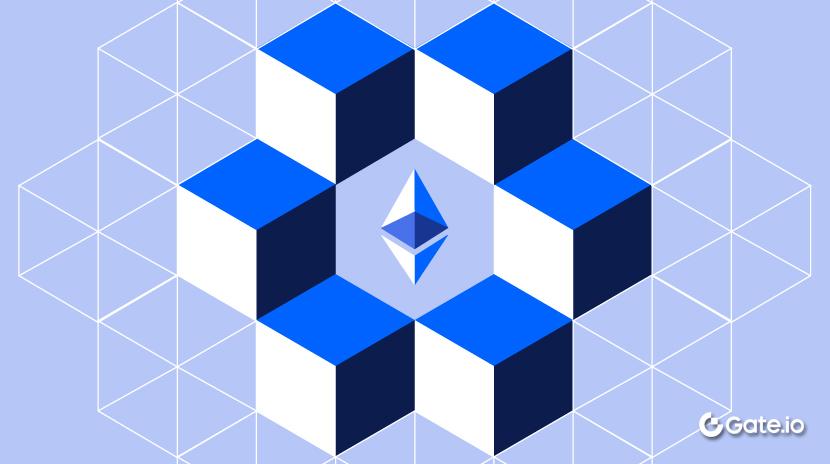
Cách đặt cược ETH?
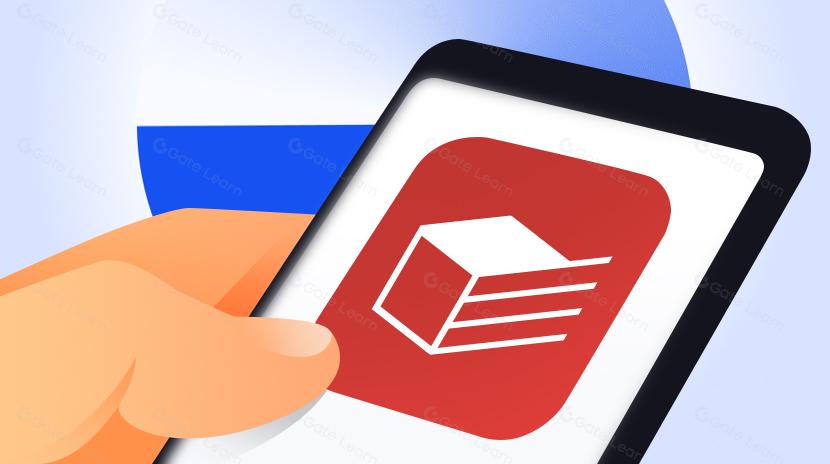
Tronscan là gì và Bạn có thể sử dụng nó như thế nào vào năm 2025?
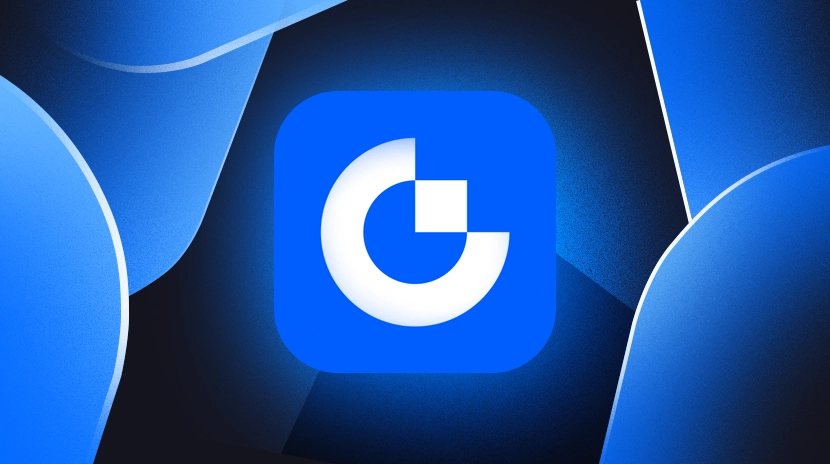
GateToken (GT) là gì?
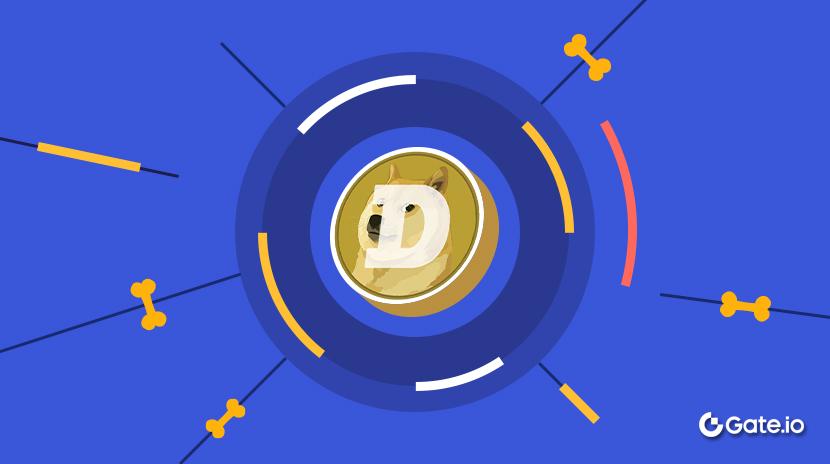
Dogecoin là gì?
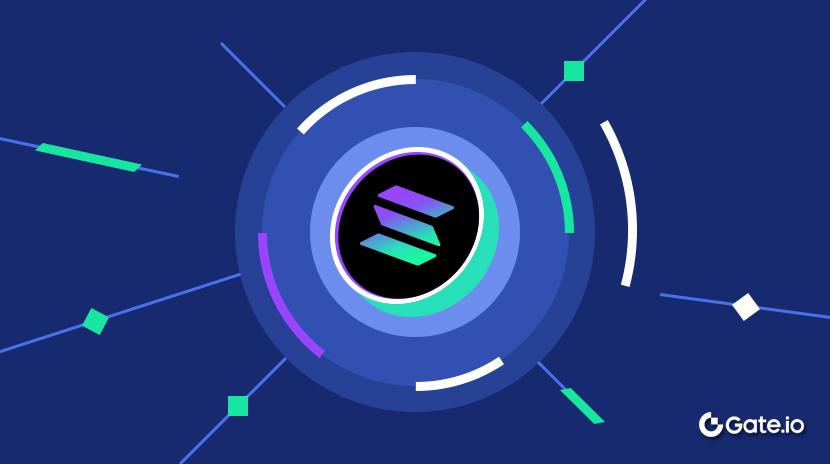
Solana là gì?
